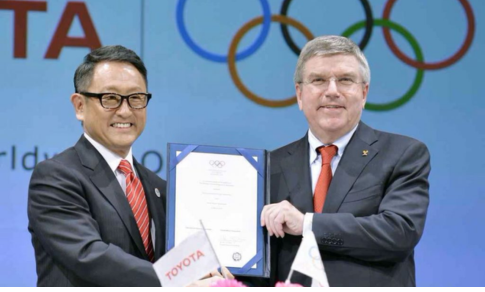Toyota, Panasonic, and Bridgestone recently announced they will end their Olympic sponsorships, citing a perceived shift in the event’s alignment with values of genuine sportsmanship. Their collective withdrawal is significant; each company was a member of an elite group of global Olympic sponsors, holding exclusive marketing rights associated with the world’s most renowned sporting event. However, with this move, Japan’s corporate giants signal a fundamental change in how they view the Olympic Games’ image, one that may prompt others to reevaluate similar partnerships.
For these companies, being an Olympic sponsor has long been more than an advertising opportunity—it’s a unique platform to connect with global audiences across cultures and showcase the prestige of their brands. The Olympics offer a positive association with values like health, competition, and inclusivity that brand managers prize. Yet, the collective exit of these companies highlights a growing sense that the Olympics no longer serves as an untainted stage for such ideals, particularly as recent controversies have marred the Games' reputation, especially in Japan.
The grievances of these companies extend beyond mere branding issues, however. Discontent began in earnest with the 2021 Tokyo Olympics, which were held despite COVID-19 restrictions that barred fans and severely limited interaction with sponsors. Toyota, for instance, had committed $835 million over a decade, banking on significant brand visibility and customer engagement during the Tokyo Games. However, the restrictions left sponsors with fewer opportunities for public interaction and soured their once highly-anticipated marketing investment. The companies’ frustrations were compounded by revelations of lavish spending by Japan’s government, contrasted with relatively modest contributions from the IOC.
Moreover, scandals surrounding the Tokyo Olympic organizing committee further eroded trust. Investigations uncovered instances of corruption and financial mismanagement, dampening public support and fueling a backlash that ultimately led Japan to withdraw its bid to host the 2030 Winter Olympics. The Olympic symbol, once a source of national pride, has increasingly become associated with controversy, casting doubt on the event’s values. Consequently, these companies no longer see a place for themselves in what they perceive as an excessively commercialized IOC, focused more on financial gain than on athletic integrity.
Yet the IOC may not suffer financially from this departure, as other countries and companies may eagerly step in, including nations with fewer qualms about the ethics of their investments. The IOC, having grown accustomed to financing from regions with looser standards on transparency and human rights, may continue unperturbed, even as it risks losing the loyalty of brands that prioritize values-driven sponsorship. While the IOC’s coffers may remain full, its credibility with global audiences and high-profile sponsors appears to be waning.
Toyota CEO Akio Toyoda voiced this sentiment succinctly, underscoring a deep rift between his company’s ideals and the IOC’s direction. For Toyota, the Olympic Games are supposed to showcase the pursuit of excellence and the spirit of competition—a vision increasingly at odds with the IOC's current trajectory. As more high-profile sponsors begin to scrutinize their own values in relation to the Games, the future of the Olympics as an elite marketing platform for principled brands may be at stake, hinting at a potential shift in the nature of global sports sponsorship.








ADD A COMMENT :